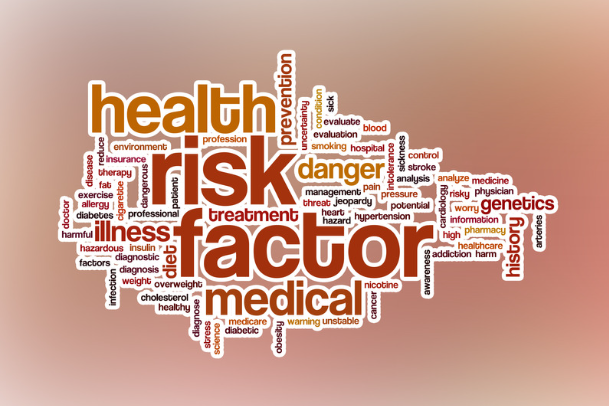Health Risks Mount as Midwest and Northeast Recover from Winter Storms
Introduction
In the wake of the recent winter storms that devastated the Midwest and Northeast regions of the United States, public health officials are expressing urgent concerns regarding the potential health risks that residents may face. Following the severe and prolonged cold weather, communities now face a range of health challenges, from hypothermia to respiratory issues. Medical professionals are stressing the importance of taking necessary precautions during the recovery phase to protect both physical and mental health.
Cold-Related Injuries
One of the primary concerns has been the rise in cold-related injuries, particularly frostbite and hypothermia. Hospitals in areas such as Illinois have reported a significant increase in cases, notably among vulnerable populations such as the elderly and homeless individuals. According to Dr. Priya Patel, an emergency physician based in Chicago, “We’re seeing cases that could have been prevented with proper shelter and care.” Medical facilities are urging residents to seek help if they or someone they know exhibits symptoms of these cold-related conditions.
Respiratory Risks and Carbon Monoxide Poisoning
In addition to cold-related injuries, health experts are monitoring the risks associated with respiratory illnesses, especially those that can result from improper heating methods. The use of space heaters and generators without proper ventilation can lead to serious health issues, including carbon monoxide poisoning. The Illinois Department of Public Health has reminded residents that, “Never use a generator indoors or in an enclosed space.” This warning highlights the critical importance of safety when finding ways to stay warm during extreme temperatures.
Mold Concerns in Flooded Areas
Another health hazard stemming from the winter storms is the emergence of mold growth in flood-affected areas. The thawing of snow has led to standing water in many homes and buildings, providing an ideal environment for mold to thrive. Health experts recommend residents take proactive measures, such as wearing protective gear while cleaning affected areas, and seeking professional assistance if the damage is severe. This guidance is essential in preventing health issues related to mold exposure, which can cause respiratory problems and other health complications.
Mental Health Awareness
Beyond physical health risks, the psychological toll of the recent winter storms is becoming increasingly evident. Sarah Klein, a licensed counselor based in Buffalo, NY, emphasizes that disasters like these can have lasting effects on mental well-being. She encourages residents to seek support if they experience signs of trauma or stress, highlighting the importance of mental health resources in the aftermath of such events. Communities are reminded that emotional recovery is just as crucial as physical recovery following a disaster.
Looking Ahead
As the recovery efforts continue, public health officials stress the importance of community engagement and proactive health measures. Residents are encouraged to check on their vulnerable neighbors and follow safety guidelines to mitigate further health risks. Additionally, accessing mental health resources should be a priority for those affected by the storms. Local organizations and health professionals are working diligently to ensure that residents have access to the support they need during this challenging time.
Conclusion
The aftermath of the severe winter storms that impacted the Midwest and Northeast brings forth numerous health challenges that require immediate attention. From cold-related injuries and respiratory issues to mold concerns and mental health risks, it is essential for residents to remain vigilant and proactive in their recovery efforts. By following safety guidelines and seeking both physical and emotional support, communities can work toward ensuring overall well-being in the wake of these unprecedented storms. As the situation continues to evolve, addressing these health risks will be vital for the long-term recovery and resilience of affected communities.
FAQs
What should I do if I suspect someone has hypothermia?
If you suspect someone has hypothermia, seek immediate medical assistance. In the meantime, move the person to a warmer environment and remove any wet clothing. Wrap them in warm blankets and offer warm beverages if they are conscious and able to drink.
How can I prevent carbon monoxide poisoning during winter storms?
To prevent carbon monoxide poisoning, always use generators and space heaters outdoors and away from windows. Install carbon monoxide detectors in your home and never use a stove or oven for heating.
What steps can I take to clean mold from my home?
When cleaning mold, wear protective gear such as gloves and masks. Use a mixture of water and detergent to scrub the affected areas. For larger mold problems, it’s advisable to seek professional help to ensure safe and effective removal.
How can I support my mental health after experiencing a disaster?
To support your mental health after a disaster, consider talking to a mental health professional, joining support groups, and engaging in stress-relief activities such as exercise, meditation, or spending time with loved ones. Don’t hesitate to reach out for help if you’re experiencing overwhelming feelings or thoughts.
Where can I find resources for assistance in my community?
You can find resources for assistance in your community by contacting local health departments, non-profit organizations, or community centers. Many organizations provide support for those affected by disasters, including mental health services and housing assistance.

